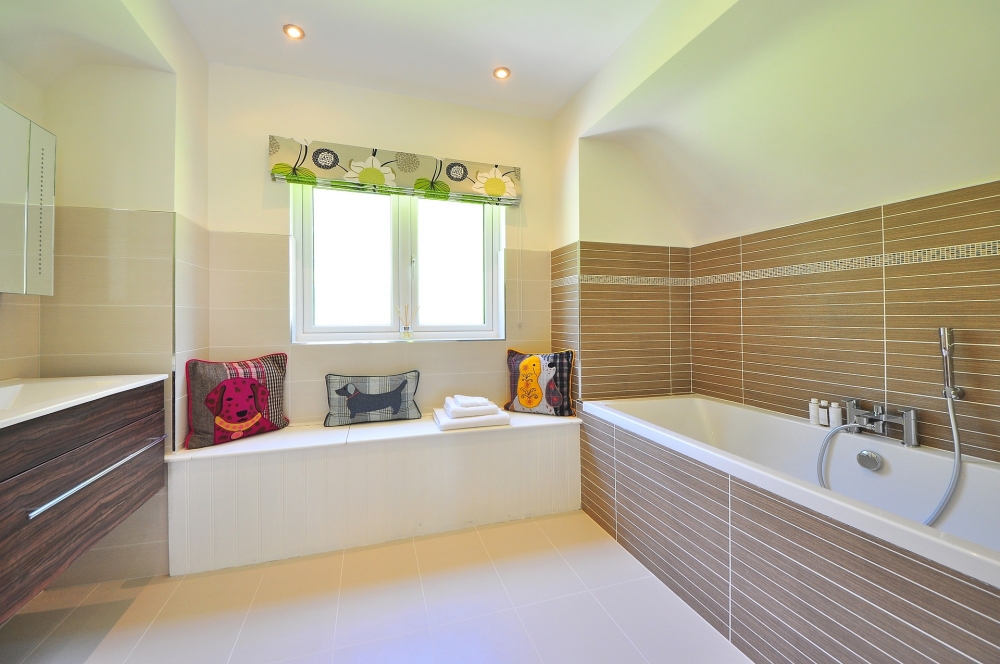We've noticed the article involving 11 Must-Read Tips for Plumbing a New House down the page on the internet and decided it made perfect sense to write about it with you on my blog.

For new house owners, understanding and keeping washroom pipes can save both time and money by avoiding expensive issues down the line. Here are some vital washroom plumbing tips to assist you maintain everything running smoothly.
Acquaint Yourself with the Main Shut-Off Shutoff
Knowing where the main water shut-off valve lies in your house is critical. This permits you to rapidly turn off the water in case of significant leakages or during plumbing emergency situations, avoiding comprehensive water damage.
Regularly Examine for Leaks
Tiny leakages can bring about large troubles. Regularly check under sinks, around toilets, and near pipes components for any kind of indicators of leakages. Seek wetness, tiny drips, or rust. Catching and repairing leaks early can avoid much more major damage and conserve water.
Don't Disregard Slow Drains
If your sink or bathtub is draining pipes gradually, it's usually an indication of a clog forming. Resolving this very early can avoid a complete clog. Make use of a plunger or a plumber's serpent to clean out debris. Stay clear of making use of chemical drain cleansers as they can damage your pipelines with time.
Know What Not to Flush
Commodes are not garbage disposals. Avoid purging anything other than bathroom tissue and human waste. Products like wipes, feminine health products, and cotton bud need to be taken care of in the trash to stop blockages and sewer back-ups.
Install Strainers in Drains
Area strainers in your sink and bath tub drains to capture hair and various other debris prior to they enter your plumbing system. Cleaning up the filters regularly will aid prevent buildup and maintain water streaming openly.
Preserve Your Water Heater
Ensure your water heater is readied to an appropriate temperature level (usually around 120 degrees Fahrenheit) to stop scalding and minimize power use. Flush the container every year to remove sediment accumulation, which can lower the efficiency and lifespan of your heating unit.
Update Your Fixtures
If your home has older fixtures, take into consideration upgrading to much more reliable models. Modern bathrooms, showerheads, and taps are created to use less water while offering excellent stress, which can considerably minimize your water costs and ecological impact.
Be Cautious with Do It Yourself Pipes Repairs
While it's tempting to deal with all home repairs on your own, be cautious with pipes. Some concerns could call for professional competence, especially if they involve main water lines or sewage system fixings. Hiring a professional can sometimes be more economical than do it yourself, especially if it prevents further damage.
Plan For Winter
Safeguard your pipes from freezing during cold weather by insulating pipes in unheated areas like cellars, attics, and garages. During severe cold, let cold water drip from taps offered by revealed pipelines to aid protect against cold.
Schedule Normal Upkeep
Think about scheduling yearly assessments with an accredited plumber. They can spot concerns that you may miss, such as hidden leaks or wear and tear on pipelines and fixtures. Normal upkeep helps extend the life of your pipes system and can protect against emergency situations.
Final thought
Recognizing and preserving your home's bathroom pipes can stop numerous common issues. By complying with these crucial ideas, you can ensure your bathroom stays practical and effective, saving you time and money in the long run.
Essential Plumbing Tips for Homeowners: Keep Your Pipes Flowing Smoothly
As a homeowner, understanding the basics of your plumbing system can save you time, money, and a lot of headaches. Plumbing issues can range from minor annoyances like dripping faucets to major problems like burst pipes that cause significant damage. This guide provides essential tips to help you maintain your plumbing system and tackle common issues.
Understanding Your Plumbing System
Supply System: Brings fresh water into your home from a municipal source or a well. Drain-Waste-Vent System: Removes wastewater and vents sewer gases outside. Fixtures and Appliances: Includes sinks, toilets, showers, dishwashers, and washing machines. Basic Maintenance Tips
Regular Inspections: Periodically check for leaks, corrosion, and other signs of wear and tear. Look under sinks, around toilets, and near water heaters. Know Your Main Shut-Off Valve: In case of a major leak, you’ll need to shut off the water quickly. Ensure everyone in your household knows where the main shut-off valve is located. Prevent Frozen Pipes: In cold climates, insulate exposed pipes and let faucets drip during extreme cold to prevent freezing. Use Strainers: Install strainers in sinks and tubs to catch hair, food particles, and other debris that can cause clogs. Common Plumbing Issues and Solutions
Clogged Drains:
Prevention: Avoid pouring grease down the drain and use drain screens to catch debris. DIY Fix: Use a plunger or a plumbing snake to clear minor clogs. For stubborn clogs, a mixture of baking soda and vinegar can sometimes help. Leaky Faucets:
Prevention: Replace washers and seals regularly. DIY Fix: Turn off the water supply, disassemble the faucet, and replace worn parts.

Book Maintenance